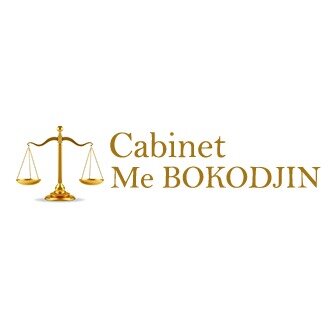Best Nonprofit & Charitable Organizations Lawyers in Lomé
Share your needs with us, get contacted by law firms.
Free. Takes 2 min.
List of the best lawyers in Lomé, Togo
About Nonprofit & Charitable Organizations Law in Lomé, Togo
Nonprofit and charitable organizations in Lomé, Togo, play a pivotal role in promoting social welfare, supporting education, enhancing healthcare, and fostering community development. These entities operate to serve the public without the objective of distributing profits to owners or stakeholders. As in many countries, the legal framework governing such organizations in Lomé is designed to ensure that they operate transparently and efficiently while adhering to national regulations. These laws cover various aspects such as registration, taxation, reporting requirements, and operational guidelines.
Why You May Need a Lawyer
Individuals and groups involved with nonprofit and charitable organizations in Lomé may require legal assistance for several reasons. Firstly, the process of forming and registering a nonprofit can be complex, involving the development of a constitution and bylaws, which requires legal expertise. Additionally, organizations may need advice on compliance with the administrative and financial reporting required by Togolese law. Lawyers can also assist in navigating the tax exemptions that nonprofits may be eligible for. Legal counsel is critical for addressing disputes within the organization, potential liabilities, and understanding labor laws related to staff and volunteers.
Local Laws Overview
The legal framework for nonprofit and charitable organizations in Lomé, Togo, is underpinned by national legislation that regulates their registration, operation, and dissolution. Key aspects include the requirement to register with relevant authorities, maintaining accurate and up-to-date financial records, and adhering to governance standards specified by Togolese law. Furthermore, there are specific provisions regarding the tax-exempt status of nonprofits, which necessitate that these organizations demonstrate their charitable purpose and accountability to receive such benefits. Compliance with labor laws and protection of beneficiary rights are also crucial components of the legal landscape.
Frequently Asked Questions
What types of organizations can register as nonprofits in Lomé, Togo?
In Lomé, Togo, various types of organizations can register as nonprofits, including cultural, educational, health-related, religious, and community development entities, as long as they operate for public benefit and not for profit distribution.
How do I register a nonprofit organization in Lomé?
To register a nonprofit, you must prepare official documents such as a constitution, bylaws, and list of founding members, and submit them to the Ministry of Territorial Administration, Decentralization and Local Government for approval.
Are nonprofit organizations in Togo tax-exempt?
Nonprofit organizations in Togo can qualify for tax exemptions if they meet specific criteria demonstrating their operation for public benefit. It is essential to apply for this status and maintain compliance with reporting obligations.
What financial reporting is required of nonprofits in Lomé?
Nonprofits must maintain accurate financial records, including income and expenditure statements, and may be required to submit annual financial reports to relevant authorities to ensure transparency and accountability.
Can a nonprofit in Togo engage in commercial activities?
Nonprofits in Togo can engage in commercial activities as long as the income generated supports the organization's charitable purpose and is not distributed as profit to members or executives.
What are the governance requirements for nonprofits?
Nonprofits must adhere to governance standards, which include having a board of directors, holding regular meetings, and following democratically established bylaws to ensure effective organizational management.
How can nonprofits avoid legal disputes?
To avoid legal disputes, nonprofits should ensure compliance with all registration and reporting requirements, maintain clear and open communication among stakeholders, and seek legal advice when drafting contracts and agreements.
What is the role of the board of directors in a nonprofit?
The board of directors oversees the organization’s strategic direction, ensures compliance with laws and regulations, manages resources responsibly, and upholds the organization’s mission and purpose.
What labor laws apply to nonprofit organizations?
Nonprofits must comply with Togolese labor laws regarding employment contracts, wages, workplace safety, and working conditions for both paid staff and volunteers to prevent legal liabilities.
How do nonprofits dissolve in Lomé?
The dissolution of a nonprofit requires adherence to specific legal procedures, including settling debts, distributing remaining assets for charitable purposes, and officially notifying the registration authorities.
Additional Resources
Several resources and governmental bodies can assist with legal advice for nonprofits in Lomé, Togo. The Ministry of Territorial Administration, Decentralization and Local Government provides guidance on registration and regulatory compliance. Additionally, local law firms specializing in nonprofit law, as well as international organizations like the International Center for Not-for-Profit Law, offer valuable insights and support.
Next Steps
If you require legal assistance with your nonprofit or charitable organization in Lomé, begin by consulting with a lawyer experienced in nonprofit law to understand the specific legal requirements and compliance issues. Gather all necessary documentation, including organizational documents and financial records, to facilitate a comprehensive consultation. Consider attending workshops or seminars on nonprofit management and legal obligations to stay informed and effectively manage your organization.
Lawzana helps you find the best lawyers and law firms in Lomé through a curated and pre-screened list of qualified legal professionals. Our platform offers rankings and detailed profiles of attorneys and law firms, allowing you to compare based on practice areas, including Nonprofit & Charitable Organizations, experience, and client feedback.
Each profile includes a description of the firm's areas of practice, client reviews, team members and partners, year of establishment, spoken languages, office locations, contact information, social media presence, and any published articles or resources. Most firms on our platform speak English and are experienced in both local and international legal matters.
Get a quote from top-rated law firms in Lomé, Togo — quickly, securely, and without unnecessary hassle.
Disclaimer:
The information provided on this page is for general informational purposes only and does not constitute legal advice. While we strive to ensure the accuracy and relevance of the content, legal information may change over time, and interpretations of the law can vary. You should always consult with a qualified legal professional for advice specific to your situation.
We disclaim all liability for actions taken or not taken based on the content of this page. If you believe any information is incorrect or outdated, please contact us, and we will review and update it where appropriate.











